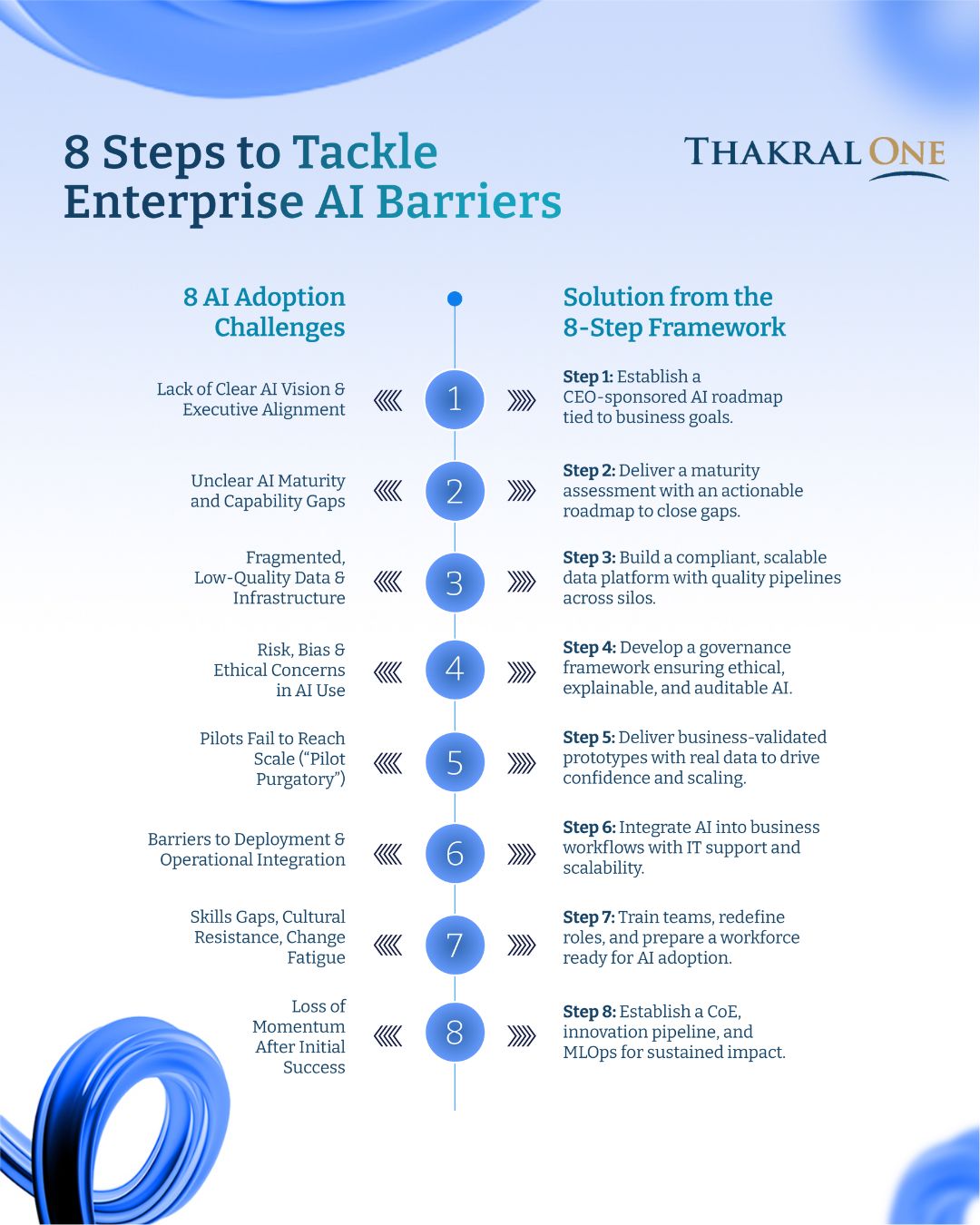As organisations race to harness the potential of artificial intelligence for competitive advantage, many encounter a sobering reality: adopting AI at scale is far more complex than deploying isolated pilots or tools. Despite strong intent and rising investments, most enterprises find their AI initiatives stalling due to structural, cultural, and operational barriers that prevent real transformation.
These recurring roadblocks can be grouped into eight major problem areas:

1. Lack of strategic alignment & weak executive sponsorship
Many organisations struggle to align AI initiatives with business goals due to poor executive sponsorship or unclear vision. A McKinsey survey found only 21% of companies have an enterprise-wide AI strategy, and just 30% report strong executive backing for AI programs.

2. Enterprises overestimate their AI maturity
Without a clear view of their current capabilities, organisations make misguided investments. Gartner reports that 60% of AI projects stall at the proof-of-concept stage due to unrealistic expectations and unaddressed maturity gaps.

3. Data fragmentation and poor quality limit AI performance
Siloed, inconsistent, and incomplete data remain a core blocker for enterprise AI. According to MIT Sloan, 42% of firms cite lack of high-quality proprietary data, and 48% are concerned about accuracy or bias in AI outputs due to poor data foundations.

4. Ethical, compliance, and governance concerns slow adoption
Fear of regulatory breaches, reputational risk, or algorithmic bias causes hesitation. IBM research shows over 40% of firms are concerned about explainability and regulatory compliance, especially in industries like finance and healthcare.

5. Pilots often fail to scale beyond experimentation
Promising AI proofs of concept frequently get stuck in “pilot purgatory.” BCG notes that only 15% of AI pilots reach production, largely due to a lack of scalable frameworks and operational readiness.

6. Embedding AI into operations is technically challenging
Legacy systems, disjointed workflows, and lack of DevOps/MLOps capabilities hamper deployment. According to Deloitte, 47% of organizations face integration barriers when scaling AI into real-world processes.

7. Skills shortages and resistance to change inhibit adoption
AI talent remains scarce, and employee fear of automation creates internal friction. World Economic Forum data indicates 42% of firms struggle to find skilled AI professionals, while up to 70% of AI transformation success depends on effective change management.

8. Momentum fades post-launch without a clear innovation engine
After initial pilots, many firms lack structured processes to sustain innovation. Accenture finds that just 29% of organisations continuously scale AI use cases, and most don’t invest in long-term talent or pipeline-building mechanisms.
We drive a structured, 8-stage consulting-led approach to help enterprises transition from AI experimentation to enterprise-wide impact, with governance, change management, and technical depth built-in.



